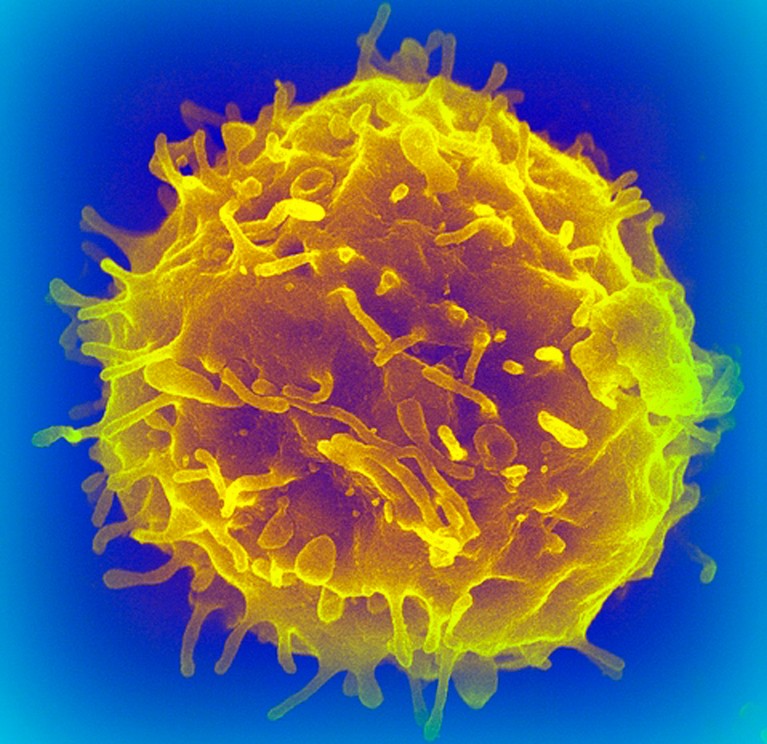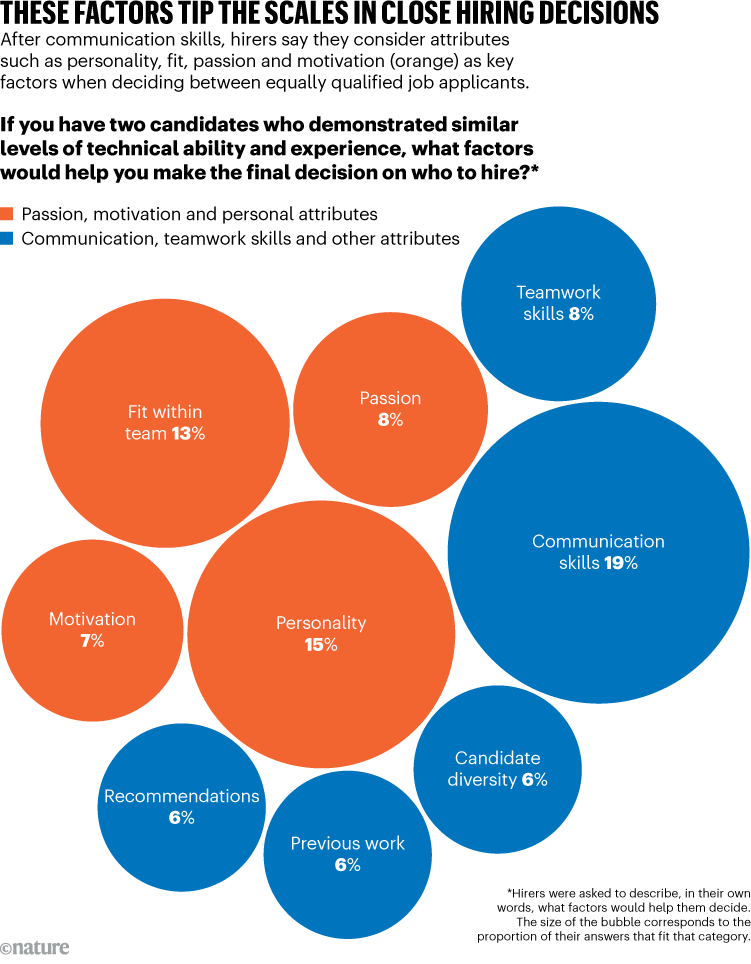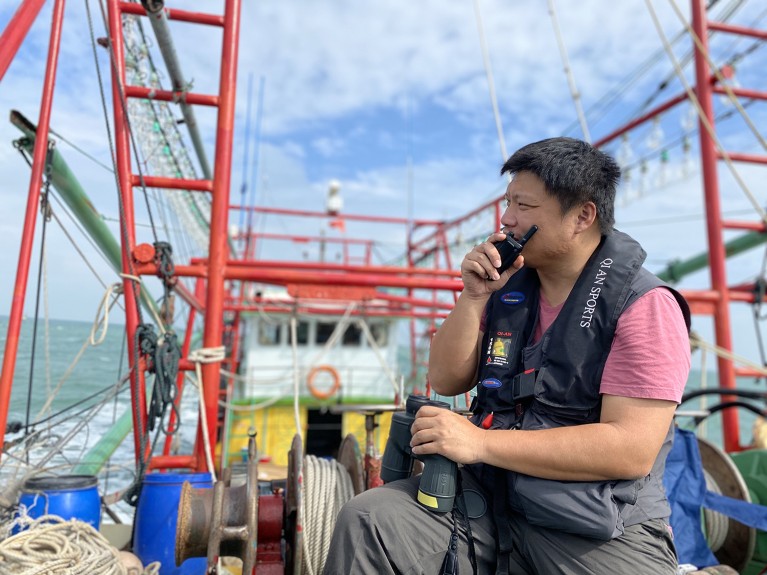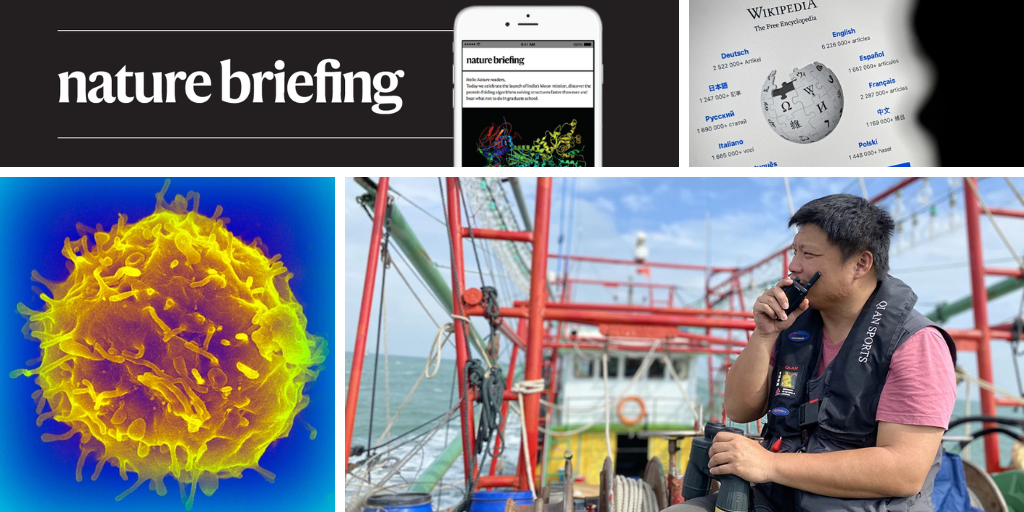Hello Nature readers, would you like to get this Briefing in your inbox free every day? Sign up here.

Haematopoietic stem cells from donors have been used to treat hundreds of thousands of people with blood cancer and other blood disorders.Credit: SPL
People who receive donor stem cells don’t seem to have an increased risk of developing cancer-causing mutations. Treatment for hundreds of thousands of people with blood cancers and bone-marrow diseases has involved depleting their blood stem-cell reserves and replacing them with cells from a healthy donor – but researchers have long worried the transplanted cells could be at increased risk of cancer. Results of a new study using blood samples from donor-recipient pairs, some of whom are the longest-lived transplantees, suggests that transplant recipients’ cells age at a similar rate to those in their donors, and they don’t have an increased risk of developing mutations, which might predispose them to blood cancers.
Reference: Science Translational Medicine paper
The recent outbreak of the deadly Marburg virus in Rwanda was sparked by a single jump of the pathogen from an animal to humans, preliminary genomic evidence shows. Other evidence suggests that the first person to become infected in the outbreak probably contracted the disease during a visit to a cave that hosts a species of bat known to harbour the virus. More data on how the virus persists in bats — and in which tissues — could help to inform surveillance efforts, which would give health officials a better picture of virus hotspots, says virologist Angela Rasmussen.
The searching patterns of nearly half a million people browsing Wikipedia suggests that users demonstrate three unique styles of curiosity. The ‘hunter’ logically pursues specific answers, the ‘busybody’ searches for diverse nuggets of new information and the ‘dancer’ links unrelated concepts through exploration. The study used two months of anonymized browsing data from more than 482,000 users of the Wikipedia mobile app from 50 countries and territories. The team suggests that understanding people’s different styles of curiosity could improve teamwork. “We can be more aware of the fact that we ask questions differently and we investigate knowledge spaces differently, and embrace that diversity,” says human curiosity and learning researcher and co-author Dani Bassett.
Reference: Science Advances paper
Features & opinion
The US needs a president who respects facts, evidence and the institutions of democracy, argues a Nature editorial published ahead of the 5 November elections. Solutions for the world’s mounting problems can come only from a shared, accurate understanding of reality, but a lack of regard for evidence fosters mistrust of scientists and institutions of state. That, in turn, weakens the foundations of democracy, both in the United States and around the world. US science, moreover, must stay open to the world’s research talent, if the country wants to maintain its position at the centre of fundamental, applied and translational research.
The results of Nature’s 2024 global survey of hiring managers in science reveals the personal qualities candidates should demonstrate to improve their chances of bagging a job. When asked to list the factors that would help them choose between two equally qualified candidates, hirers more often cited passion and enthusiasm or motivation than they did recommendations or previous work experience. One of the main challenges when recruiting, say employers, is candidates who seem to exaggerate their skills or background. Hirers prefer people who are grounded, humble and who support their claims with evidence.

Climate change is making the fire season in the Western United States both warmer and drier, aiding larger, more intense blazes. If the country is to adapt, fire science needs a drastic shift, argue a fire ecologist and a hydroclimatologist. A combination of ‘prescribed’ burning to thin out fuel, collecting data on how and where fires spread and modelling of future blazes to avoid worst-case scenarios are vital steps to building a fire-resilient future, they argue. The focus should be on how to coexist with fire — not simply how best to battle it, they write.
Where I work

Chen Mo is a marine biological researcher at Guangxi Academy of Sciences in Nanning, China.Credit: Chen Mo
In the Gulf near Weizhou Island, marine biologist Chen Mo works to study and protect China’s only known population of Bryde’s whales (genus Balaenoptera). The whales are drawn to these waters from September to April, but fishing and whale-watching tours pose a threat to their habitat. “In recent years, I’ve spent more than 100 days on Weizhou, plus around 70 days at sea,” he says. “My work will help to build a solid database of whale activities, not only as concrete evidence of the species’ existence, but also as an essential tool for advocating for marine ecological conservation.” (Nature | 3 min read)
On Friday, Leif Penguinson was exploring the Itaimbezinho, a canyon in the Aparados de Serra National Park, Brazil. Did you find the penguin? When you’re ready, here’s the answer.
Your feedback is always welcome at [email protected].
Thanks for reading,
Jacob Smith, associate editor, Nature Briefing
Want more? Sign up to our other free Nature Briefing newsletters:
• Nature Briefing: Careers — insights, advice and award-winning journalism to help you optimize your working life
• Nature Briefing: Microbiology — the most abundant living entities on our planet — microorganisms — and the role they play in health, the environment and food systems
• Nature Briefing: Anthropocene — climate change, biodiversity, sustainability and geoengineering
• Nature Briefing: AI & Robotics — 100% written by humans, of course
• Nature Briefing: Cancer — a weekly newsletter written with cancer researchers in mind
• Nature Briefing: Translational Research — covers biotechnology, drug discovery and pharma


